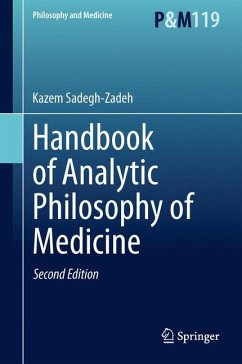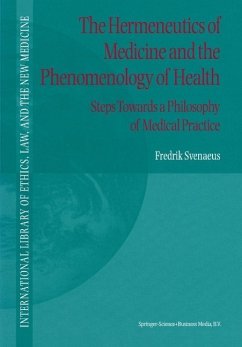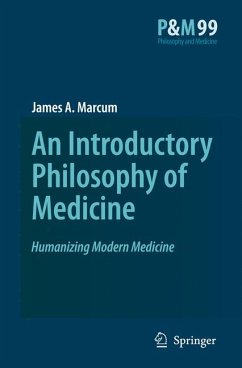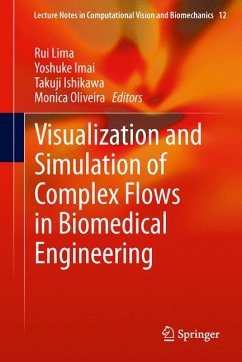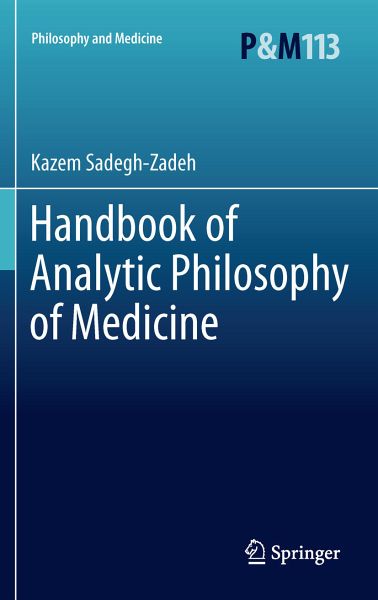
Handbook of Analytic Philosophy of Medicine (eBook, PDF)
Versandkostenfrei!
Sofort per Download lieferbar
360,95 €
inkl. MwSt.
Weitere Ausgaben:

PAYBACK Punkte
180 °P sammeln!
Medical practice is practiced morality, and clinical research belongs to normative ethics. The present book elucidates and advances this thesis by: 1. analyzing the structure of medical language, knowledge, and theories; 2. inquiring into the foundations of the clinical encounter; 3. introducing the logic and methodology of clinical decision-making; 4. suggesting comprehensive theories of organism, life, and psyche; of health, illness, and disease; of etiology, diagnosis, prognosis, prevention, and therapy; and 5. investigating the moral and metaphysical issues central to medical practice and ...
Medical practice is practiced morality, and clinical research belongs to normative ethics. The present book elucidates and advances this thesis by: 1. analyzing the structure of medical language, knowledge, and theories; 2. inquiring into the foundations of the clinical encounter; 3. introducing the logic and methodology of clinical decision-making; 4. suggesting comprehensive theories of organism, life, and psyche; of health, illness, and disease; of etiology, diagnosis, prognosis, prevention, and therapy; and 5. investigating the moral and metaphysical issues central to medical practice and research.
Dieser Download kann aus rechtlichen Gründen nur mit Rechnungsadresse in A, B, BG, CY, CZ, D, DK, EW, E, FIN, F, GR, HR, H, IRL, I, LT, L, LR, M, NL, PL, P, R, S, SLO, SK ausgeliefert werden.




